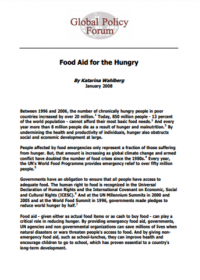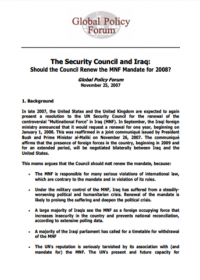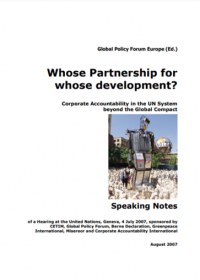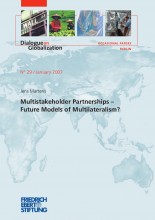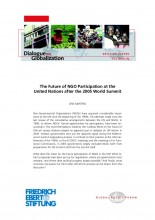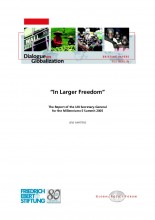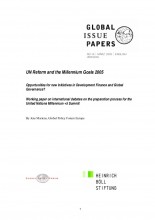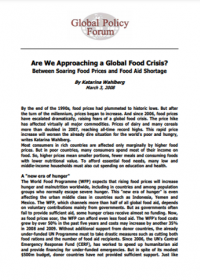
Global Policy Forum's Katarina Wahlberg warns that for the "first time in decades, worldwide scarcity of food is becoming a problem." Increasing demand of cereals for food consumption, cattle feeding and in particular biofuel production, is driving food prices to record levels. Especially the poor, who spend a majority of their income on food, will suffer. To make matters worse, the food price hike is also affecting the amount of food aid available, as governments have not increased funding for [...]

